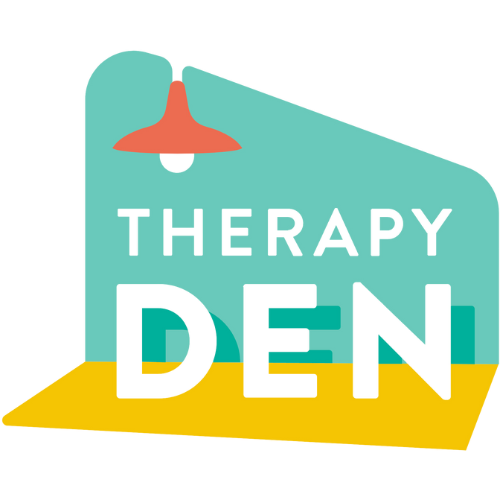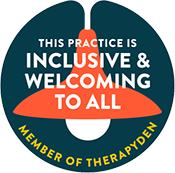Yes! Here are expanded explanations of our major modailties and specialities:
Acceptance and Commitment Therapy (ACT)
ACT is a powerful approach in sports counseling that helps athletes navigate the mental challenges of their sport. It focuses on six core processes: acceptance, cognitive defusion, being present, self as context, values, and committed action. In sports, ACT helps athletes accept difficult thoughts and feelings while committing to behaviors aligned with their core values.
For example, an athlete might learn to acknowledge pre-competition anxiety without trying to eliminate it, instead focusing on the present moment and their commitment to perform at their best. ACT teaches athletes to "defuse" from negative thoughts, viewing them as passing mental events rather than absolute truths.
Research has shown promising results for ACT in sports settings. A study by Lundgren et al. (2020) found that ACT interventions resulted in a 52% reduction in anxiety symptoms among athletes.
The flexibility of ACT makes it applicable across various sports and competitive levels, helping athletes build psychological resilience and maintain focus on their values-driven goals.
Person-Centered Therapy (PCT)
Also known as client-centered therapy, PCT is a therapeutic approach that focuses on the practitioner-client relationship and has been shown to be effective when working with athletes presenting complex emotional experiences.
The core principles of PCT in sports counseling include:
Unconditional positive regard: The therapist accepts the athlete without judgment, fostering a safe space for self-exploration.
Self-charting: This technique helps athletes visually represent and track their emotional experiences over time.
Clearing a Space (CAS): This method assists athletes in identifying and temporarily setting aside concerns to focus on specific issues.
Research suggests that PCT can enhance an athlete's self-awareness, emotional regulation, and overall well-being.
Gestalt Therapy
When applied to sports psychology, Gestalt Therapy focuses on present experiences and self-awareness. This approach encourages athletes to take responsibility for their actions and experiences.
Key principles of Gestalt Therapy in sports counseling include:
Awareness: Helping athletes become more aware of their bodily sensations, emotions, and thoughts during performance.
Present-centeredness: Focusing on current experiences rather than past events or future anxieties.
Responsibility: Encouraging athletes to take ownership of their choices and actions.
Holistic approach: Considering the athlete as a whole person, not just their athletic performance.
Overall, case studies suggest Gestalt Therapy's potential in improving self-awareness, emotional regulation, and overall performance in athletes.
Existential Therapy
When applied to sports psychology, Existential Therapy focuses on helping athletes find meaning and purpose in their athletic pursuits and beyond.
Key principles of Existential Therapy in sports counseling include:
Authenticity: Encouraging athletes to be true to themselves and their values.
Responsibility: Helping athletes take ownership of their choices and actions.
Meaning-making: Assisting athletes in finding purpose in their sport and life experiences.
Freedom and limitations: Exploring the balance between personal freedom and the constraints of athletic life.
Practical applications in sports include: exploring the athlete's sense of identity beyond their sport; addressing fears and anxieties related to performance, injury, or retirement; hHelping athletes navigate major life transitions, such as moving from junior to senior levels; encouraging athletes to reflect on their personal values and how these align with their athletic pursuits
Existential Therapy can be particularly beneficial for junior athletes who are navigating the complex transition from adolescence to adulthood while also pursuing high-level athletic careers. It can help them develop a more holistic sense of self and find meaning beyond their athletic achievements.
Emotion Focused Therapy (EFT)
EFT is a process-experiential, person-centered therapeutic approach that focuses on helping athletes evoke, experience, and process their emotions to develop greater acceptance, awareness, and understanding of their emotional experiences.
The major principles of EFT in sports counseling are: overcoming the avoidance of emotions; maintaining a collaborative focus on emotions; and exploring and processing emotions in therapy.
Common tasks in EFT sessions with athletes may include: developing a therapeutic alliance; increasing awareness and attention to emotions; enhancing capacity to tolerate emotional arousal; validating emotional experiences; evoking and exploring emotions; and transforming emotions and developing new emotional responses.
Research on EFT in sports contexts is emerging. For example, a recent study by Tamminen et al. (2024) evaluated the feasibility of EFT for athletes with mild-to-moderate symptoms of depression and anxiety. The study found that
6 out of the 8 athletes who completed all sessions demonstrated symptom reduction below mild levels of depression or anxiety.
In contrast, only 1 out of 12 athletes in the control group showed decreases in symptoms of depression and anxiety.
EFT shows potential in helping athletes manage and process intense emotional difficulties, particularly during injury and rehabilitation periods, and in supporting their psychological healing and sport performance.
Solution Focused Therapy (SFT)
SFT is a goal-directed collaborative approach that focuses on constructing solutions rather than analyzing problems. In sports psychology, SFT helps athletes and teams identify their strengths and resources to achieve their goals and overcome challenges.
Key principles of SFT in sports counseling include: focus on solutions rather than problems; emphasis on the present and future rather than the past; belief that small changes can lead to larger improvements; and recognition that the client (athlete) is the expert on their own life.
Practical applications in sports include: using the "miracle question" to help athletes envision their ideal performance; scaling questions to measure progress and set achievable goals; and identifying exceptions to problems to build on existing strengths; complimenting athletes on their resources and successes.
Research on SFT in sports contexts has shown promising results. Shumway (2019) conducted an intervention study on collegiate athletes using SFT to address competition anxiety. The study found: significant decreases in self-reported competition anxiety post-intervention; significant increases in self-ratings of performance post-intervention; and significant changes in EEG brainwave activity, particularly in the dorsolateral prefrontal cortex and temporal lobes.
These types of studies suggest that SFT can be an effective approach in sports counseling, particularly for addressing performance anxiety, improving team dynamics, and enhancing overall athletic performance.
Trauma-informed/Trauma-focused Therapy
In sports psychology, Trauma-informed/Trauma-focused Therapy recognizes the prevalence of trauma among athletes and aims to create a safe, supportive environment that promotes healing and resilience. This approach is essential for athletes who have experienced trauma, either in or outside of sports.
Key principles of Trauma-informed/Trauma-focused Therapy in sports counseling include:
Safety: Creating a physically and emotionally safe environment for athletes.
Trustworthiness and transparency: Being clear about expectations and procedures.
Peer support: Encouraging connections among athletes with similar experiences.
Collaboration: Involving athletes in decision-making about their treatment and recovery.
Empowerment: Focusing on athletes' strengths and resilience.
Cultural sensitivity: Recognizing and respecting diverse backgrounds and experiences.
Practical applications in sports include: adapting training environments to minimize potential triggers; aducating coaches and staff about trauma and its effects on performance; implementing trauma-sensitive coaching practices; and offering individual and group therapy sessions focused on trauma recovery.
Positive Psychology
In sports, Positive Psychology focuses on building strengths, fostering positive emotions, and enhancing overall well-being among athletes. This approach shifts the focus from fixing weaknesses to developing and leveraging strengths, which can lead to improved performance and greater life satisfaction.
The key principles of Positive Psychology in sports counseling are: strength identification and development; cultivation of positive emotions; building resilience; enhancing mindfulness and flow states; and promoting growth mindset; developing optimism and hope.
The practical applications in sports include: using strength assessments to identify and leverage athletes' core strengths; implementing gratitude practices to enhance team cohesion and individual well-being; teaching mindfulness techniques to improve focus and performance; developing resilience-building exercises to help athletes bounce back from setbacks; and couraging the use of positive self-talk and visualization techniques
A study by Salama-Younes (2011) on the application of Positive Psychology to sports found that interventions were associated with improvements in athletes' resilience, optimism, and overall life satisfaction. The study reported increases of 10-25% in various well-being measures.
The approach's focus on building strengths and fostering positive emotions appears to be particularly effective in the high-pressure environment of competitive sports.
Sport Psychology
A specialized field that addresses the unique mental challenges athletes face, Sport Psychology focuses on enhancing performance, managing stress, and promoting overall mental health in sports contexts.
Key areas include performance enhancement, stress management, injury recovery, team dynamics, career transitions, and mental health in sport.
Practical applications involve mental skills training, anxiety management techniques, concentration strategies, team building, and psychological support during injury rehabilitation.
Research has consistently demonstrated the effectiveness of Sport Psychology interventions. Meta-analyses and systematic reviews have shown that psychological interventions can improve athletic performance by 15-20% in competitive settings, with 84-85% of studies reporting positive effects.
Self-talk interventions have shown moderate positive effects on performance, particularly for tasks requiring fine skills and precision.
Mindfulness-based interventions have led to significant reductions in anxiety symptoms, potentially by 20-30%.
Cognitive-behavioral interventions have been particularly effective in reducing anxiety and enhancing performance, with large effect sizes. These findings underscore the crucial role of Sport Psychology in comprehensive sports training and counseling programs, offering significant benefits in both performance enhancement and anxiety reduction for athletes across various sports and competitive levels.
Sources:
1. Lundgren, T., Reinebo, G., Näslund, M., & Parling, T. (2020). Acceptance and commitment therapy to promote psychological flexibility in ice hockey performance: A controlled group feasibility study. Journal of Clinical Sport Psychology, 14(2), 170-181.
2. Tamminen, K., Watson, J., Zeuner, J., & Worthen, J. (2024). Evaluating the feasibility of Emotion Focused Therapy for athletes with mild-to-moderate symptoms of depression and anxiety. Journal of Exercise, Movement, and Sport, 55(1).
3. Bednářová, D. (2009). Applying Gestalt therapy principles in counseling a female orienteer. Acta Universitatis Palackianae Olomucensis. Gymnica, 39(1), 17-22.
4. Papaioannou, A. G., & Hackfort, D. (2014). Routledge companion to sport and exercise psychology: Global perspectives and fundamental concepts. Routledge.
5. Baker, A. H. (2010). A re-examination of Church's (2009) study into the effects of Emotional Freedom Techniques (EFT) on basketball free-throw performance. Energy Psychology: Theory, Research, & Treatment, 2(1), 39-44.
6. Shumway, K. T. (2019). Solution-Focused Therapy Changes Neurophysiological Activation in Collegiate Athletes: An Intervention Study. Doctor of Psychology (PsyD), 263.
7. Salama-Younes, M. (2011). Positive mental health, subjective vitality and satisfaction with life for French physical education students. World Journal of Sport Sciences, 4(2), 90-97.





